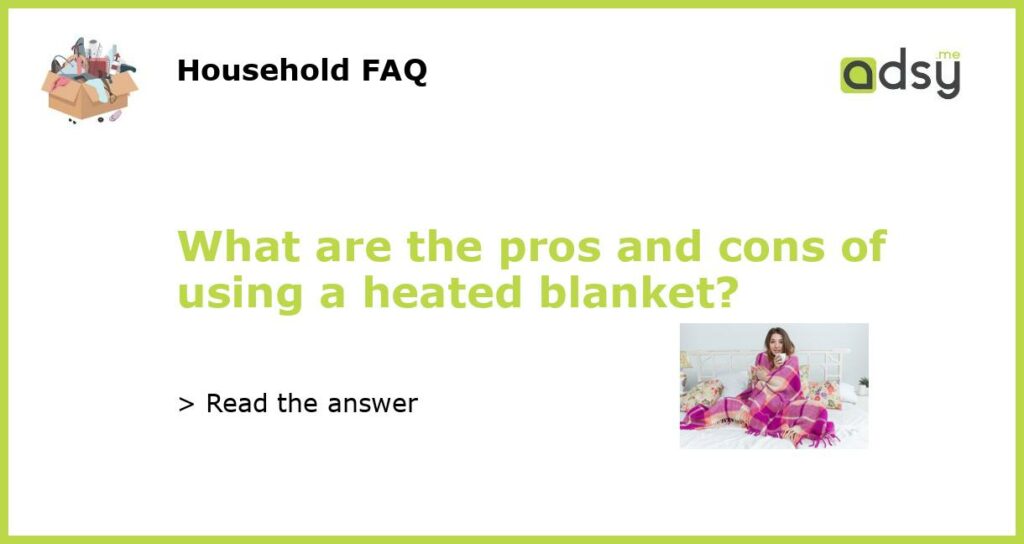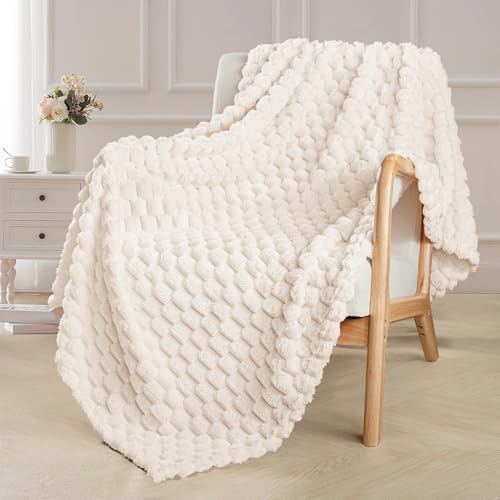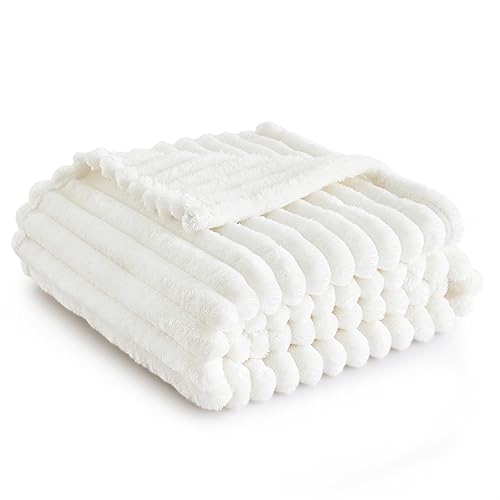Pros and Cons of Using a Heated Blanket
A heated blanket is a popular choice for many individuals who want to stay warm and cozy during the cold winter months. However, before investing in one, it’s essential to consider the pros and cons to help determine if it’s the right choice for you. In this article, we will discuss the advantages and disadvantages of using a heated blanket.
Pros of Using a Heated Blanket
1. Provides Warmth and Comfort: One of the main advantages of using a heated blanket is that it provides instant warmth and comfort. The blanket’s heating elements can generate heat quickly, allowing you to snuggle up and feel cozy in no time. This is especially beneficial for individuals who live in colder climates or those who have difficulty staying warm at night.
2. Helps Relieve Muscle Pain and Tension: Heated blankets can also provide therapeutic benefits. The warmth from the blanket can help soothe sore muscles, reduce tension, and alleviate pain. It can be particularly useful for individuals with conditions such as arthritis or chronic muscle pain. The gentle heat can promote relaxation and improve blood circulation, contributing to relieving discomfort.
3. Energy Efficient: Compared to using a traditional space heater or turning up the thermostat, a heated blanket is much more energy-efficient. By using a heated blanket, you can target the direct warmth to your body without having to heat an entire room. This can help lower your energy bills and reduce your carbon footprint.
Cons of Using a Heated Blanket
1. Fire Hazard if Not Used Properly: One of the significant concerns with heated blankets is the potential fire hazard if not used properly. Overheating, frayed cords, or leaving the blanket unattended can lead to a fire. It is crucial to follow the manufacturer’s instructions, avoid folding the blanket while in use, and regularly inspect it for any signs of damage. This will help ensure safety while using a heated blanket.
2. Not Suitable for Everyone: Heated blankets may not be suitable for everyone, particularly young children, individuals with sensory disabilities, or those who cannot control their body temperature. It’s important to consult with a healthcare professional before using a heated blanket if you have any medical conditions or concerns about its usage.
3. Can Cause Overheating and Dehydration: While a heated blanket can provide warmth, it also poses the risk of overheating and dehydration. It’s essential to follow the recommended usage guidelines and avoid using the blanket for an extended period without taking breaks. It’s crucial to stay hydrated and monitor your body temperature while using a heated blanket.
A heated blanket can be a fantastic addition to your winter comfort routine, providing instant warmth and coziness. However, it’s important to weigh the pros and cons before making a purchase. Consider factors such as safety, individual suitability, and potential risks. By understanding both the advantages and disadvantages, you can make an informed decision and enjoy the benefits of using a heated blanket while minimizing any potential drawbacks.






